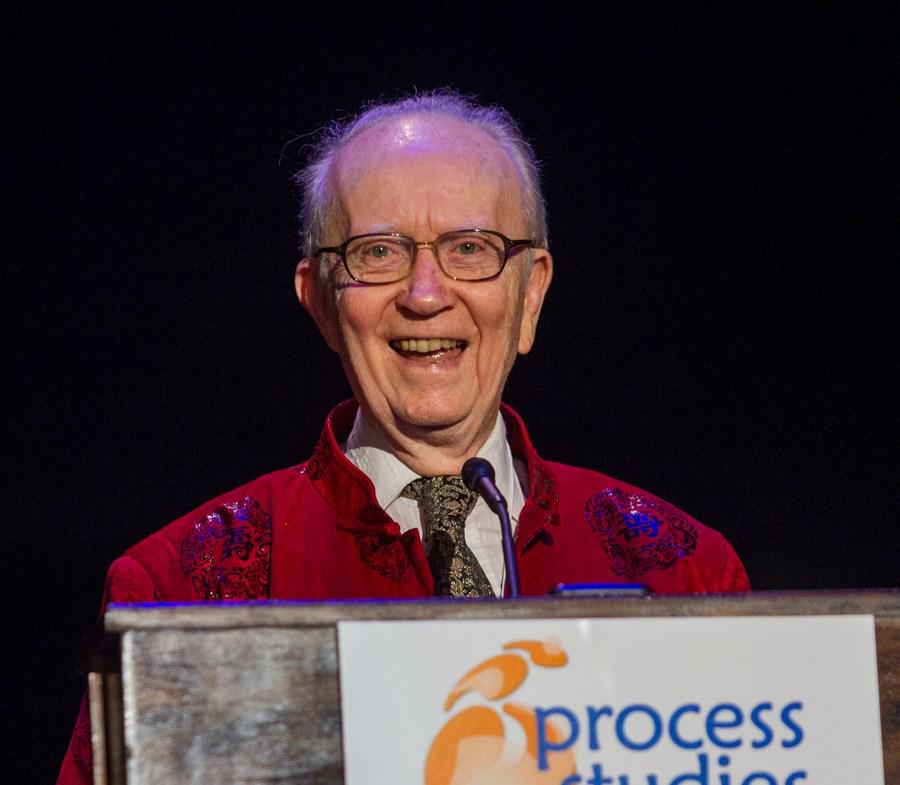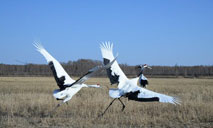Interview: COVID-19 raises people's awareness for environmental protection

John B. Cobb, Jr. speaks in a conference plenary "A Whiteheadian response to the Global Crisis" during the 10th International Whitehead Conference and the 9th International Conference Ecological Civilization in Pomona College in Claremont, California, the United States, on June 5, 2015. (Xinhua/Zhao Hanrong)
China can become a world leader in promoting biodiversity, U.S. ecological philosopher John B. Cobb, Jr. said. "While the U.S. loses status in the developing world, China is earning respect and will be more followed. This is a great responsibility and a great opportunity."
WASHINGTON, April 21 (Xinhua) -- The COVID-19 pandemic has raised people's awareness for environmental protection, U.S. ecological philosopher John B. Cobb, Jr. told Xinhua in an exclusive interview ahead of the annual Earth Day which falls on April 22.
"For decades many people have agreed that the world is heading in the wrong direction, that change is needed. But their practical actions have been little influenced," said Cobb, a 96-year-old member of the American Academy of Arts and Sciences.
"The pandemic has greatly increased the number who understand at a deeper level, one that has more influence on action, that change is needed," said Cobb, founding president of the Institute for Postmodern Development of China.
It also shows that dramatic change in behavior is possible even when it is highly disruptive, he said.
Cobb noted the pandemic has accompanied a technological development of great importance, such as online communication tools.
"We have learned that we can talk with people everywhere without leaving our homes. Greatly reducing travel does not mean isolation. Serious discussion of a world that uses much less fossil fuels for transportation is possible," Cobb noted.
This might extend to reenvisioning "the good life" such as not needing private automobiles, he said.
"We can rethink cities so as to have many hubs allowing most people to live near where they work. Also, especially in China, more jobs can move to the countryside," Cobb told Xinhua.
Less related to the pandemic is the possibility of changing attitudes toward dirt and soil, he said. "The future wellbeing of humanity depends on our reversal from reducing and poisoning soil to increasing and purifying it. China can lead the world on this. This is even more important than reducing travel and the use of fossil fuels for transportation."
China can become a world leader in promoting biodiversity, Cobb said.
"While the U.S. loses status in the developing world, China is earning respect and will be more followed. This is a great responsibility and a great opportunity," Cobb told Xinhua.
Photos
Related Stories
Copyright © 2021 People's Daily Online. All Rights Reserved.










